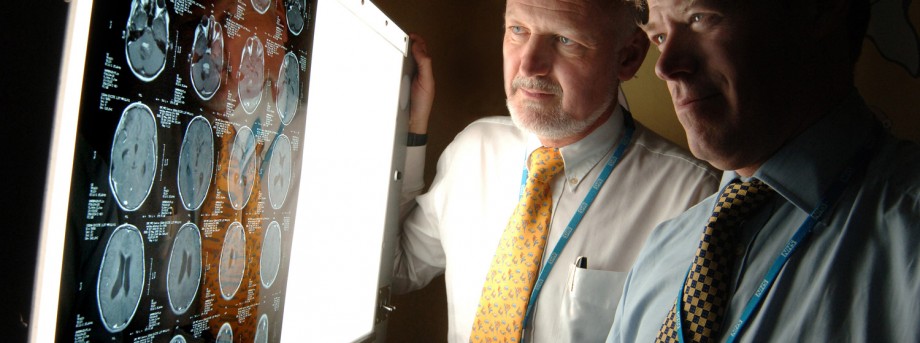The University of Nottingham
 Exchange online
Exchange online
Research Exchange
Funding for new tumour drugs could save lives

New research into drugs which could prevent the return of persistent brain tumours in children has won vital funding from two major brain tumour charities.
The pioneering work in this historically underfunded area is being carried out at the Children’s Brain Tumour Research Centre at the University, one of the centres of excellence in Europe.
The new research has been jointly funded by the Samantha Dickson Brain Tumour Trust and the Joseph Foote Charitable Trust, both charities set up by families who have lost children to the condition.
The scientists will be investigating ‘ependymoma’, a tumour type from which less than half of the children diagnosed will survive. It’s a type that usually affects children, and develops from the cells lining the fluid-filled spaces in the brain called ventricles. Even after surgical removal combined with chemotherapy and radiotherapy, this type of cancer tends to return in a therapy-resistant form in up to half of the cases.
Normal, healthy cells use ‘tumour suppressor genes’ to help control their growth. But in certain ependymoma cells, some of these genes are de-activated by proteins called ‘histone deacetylases’, allowing the cells to grow and multiply in an uncontrolled way.
The team is investigating a group of drugs called ‘histone deacetylase inhibitors’ (HDACi) which are designed to re-activate the body’s natural defence mechanisms against brain cancer. Previous work by the group in the lab shows that the HDACi ‘Trichostatin A’ causes most ependymoma cells to grow more slowly and eventually die. One HDACi is currently being trialled in the treatment of adult patients with another type of brain tumour, ‘glioblastoma multiforme’.
Leading the research, Professor Richard Grundy, said: “This is vital funding which will make a real difference to our work. It is hoped that this research will lead to a better understanding of the biology of the cancer cells that return following initial treatment, and of the factors responsible for their resistance to therapy. This could lead to new ways to predict how these tumours will behave, and how ependymoma cells can be targeted and destroyed by new cancer drugs.”
Paul Carbury, CEO of the Samantha Dickson Brain Tumour Trust, said: “We are proud to be working with the Joseph Foote Charitable Trust to offer funding that will facilitate this vital research. The fact that this new project was selected through our accredited competitive peer review process shows that it is especially deserving of our support. We’re optimistic that it will directly lead to the development of a new and effective treatment that will improve patients’ outlooks and could save lives.”
Tags: Children's Brain Tumour Research Centre, Joseph Foote Charitable Trust, Samantha Dickson Brain Tumour Trust
Leave a Reply
Other News

Top prize for quantum physicist
A University of Nottingham physicist has won a prestigious medal from the Institute of Physics for […]

Zero carbon HOUSE designed and built by students comes home
Design and construct a low cost, zero carbon, family starter home, transport it to Spain, build […]